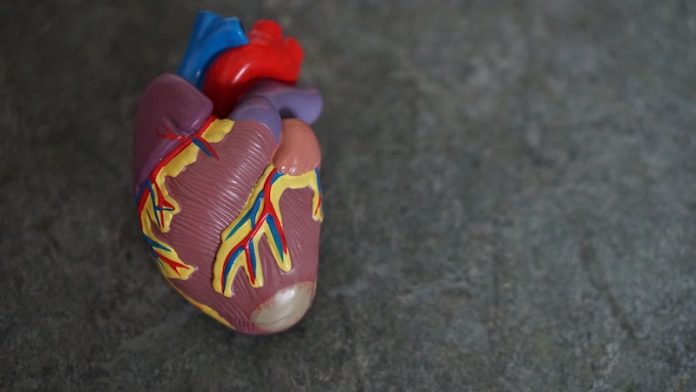
Heart attack is one of the leading causes of death worldwide.
Modern surgical techniques, diagnostics and medications have greatly improved early survival from these events.
But many patients struggle with the long-term effects of permanently damaged tissue, and the 5-year mortality rate remains high.
In a new study from Soochow University, researchers have developed a minimally invasive exosome spray that may help repair the heart after a heart attack.
Scientists have explored using stem cell therapy as a way to regrow tissue after a heart attack.
But introducing stem cells directly to the heart can be risky because they could trigger an immune response or grow uncontrollably, resulting in a tumor.
Therefore, researchers have tried injecting exosomes — membrane-bound sacs containing proteins, lipids and nucleic acids secreted by stem cells — into the heart, but they often break down before they can have therapeutic effects.
In the study, the team wanted to develop an exosome solution that could be sprayed onto the heart through a tiny incision, avoiding major surgery.
They mixed exosomes with a protein involved in blood clotting and added this solution to a tiny, double-barreled syringe that contained a separate solution of another clotting protein called thrombin.
When the team sprayed the solutions out of the syringe onto a rat’s heart through a small chest incision, the liquids mixed and formed an exosome-containing gel that stuck to the heart.
In rats that had recently had a heart attack, the exosome spray lasted longer, healed injuries better and boosted the expression of beneficial proteins more than heart-injected exosomes.
In pigs, the spray caused less severe immune reactions and surgical stress than open-chest surgery.
The team says the spray is a promising strategy to deliver therapeutic exosomes for heart repair.
If you care about heart health, please read studies about a new way to detect heart attack in people with chest pain and findings of common flu may play a big role in heart attacks in older people.
For more information about heart health, please see recent studies about ‘silent’ heart attacks may increase risk of stroke and results showing that this existing drug has a unique role in treating heart attacks.
The study is published in ACS Nano. One author of the study is Yafeng Zhou.
Copyright © 2021 Knowridge Science Report. All rights reserved.



